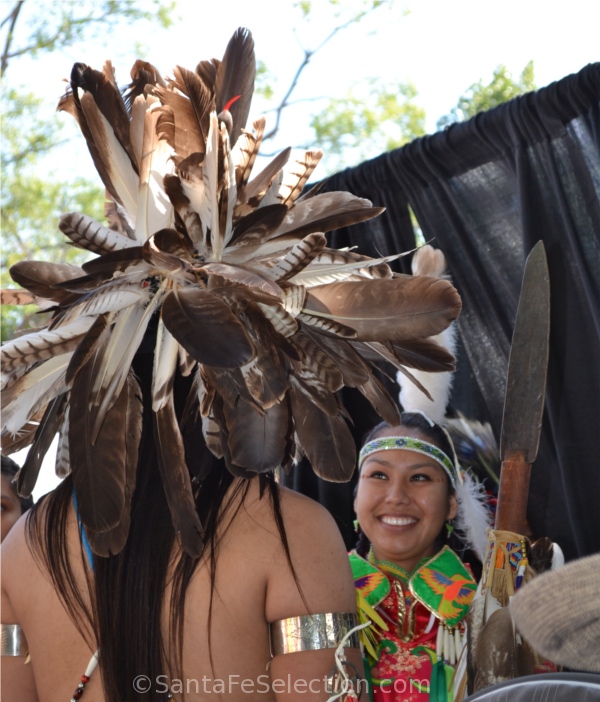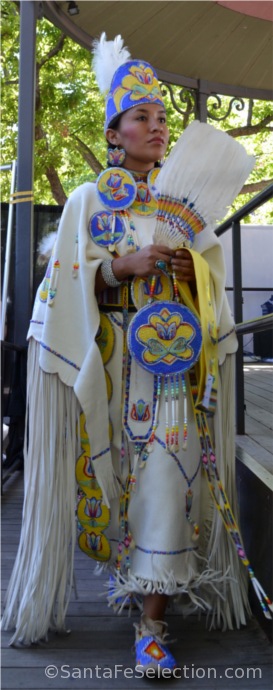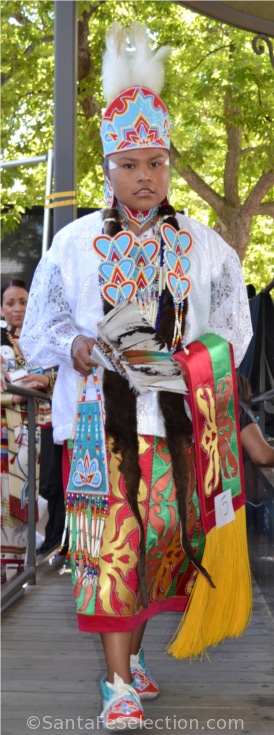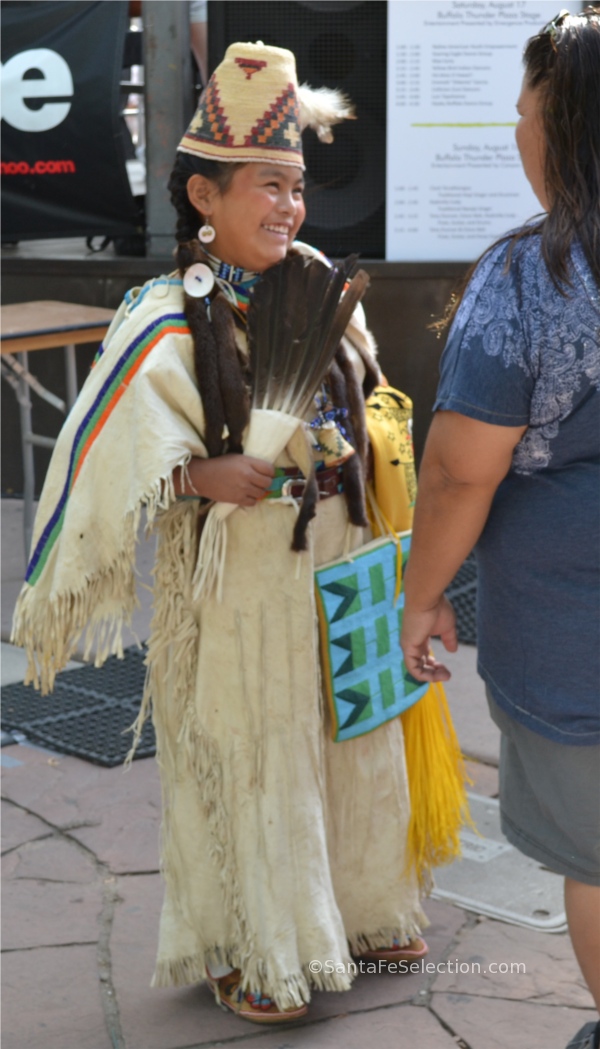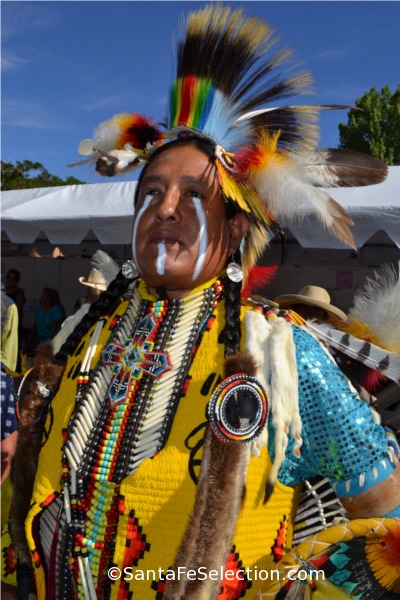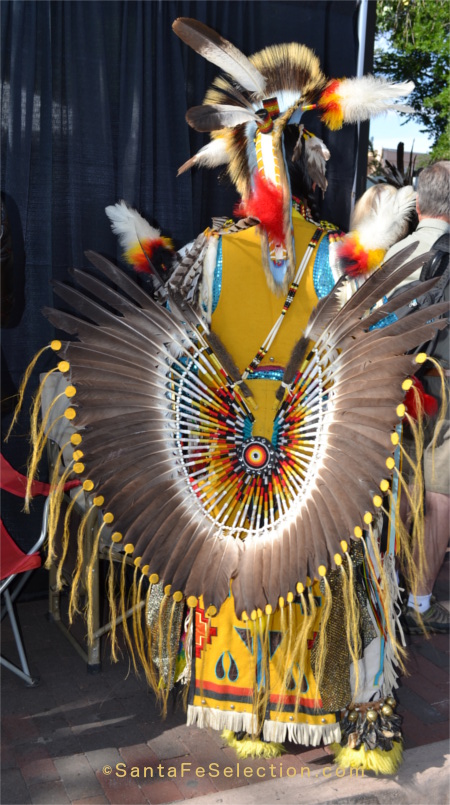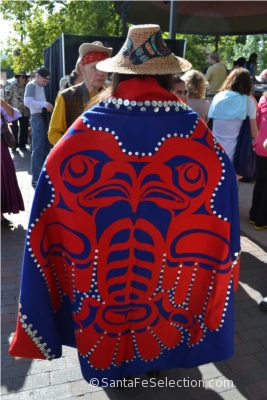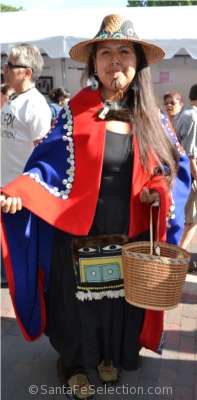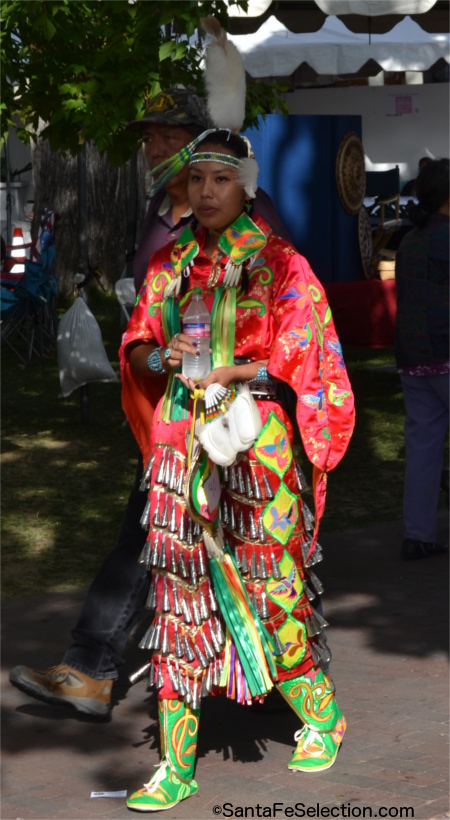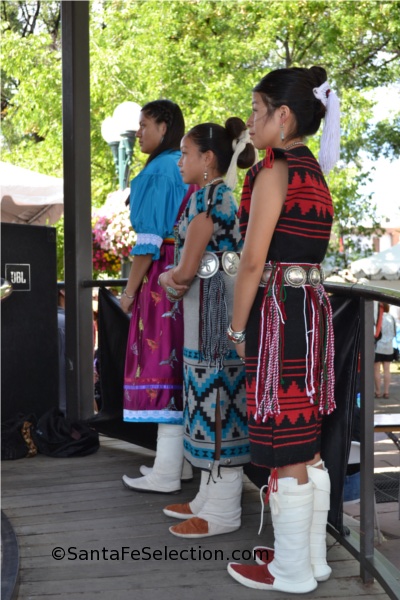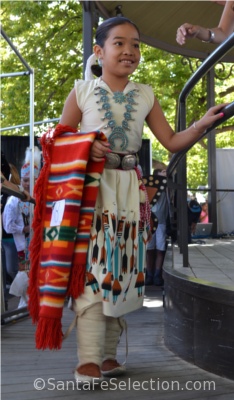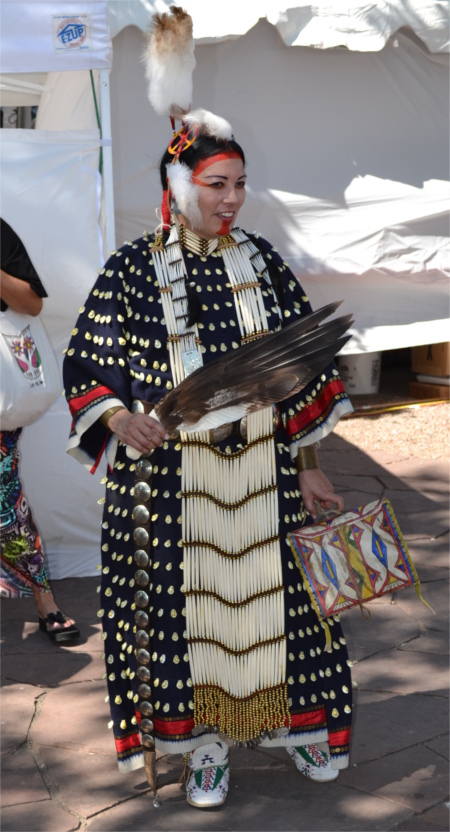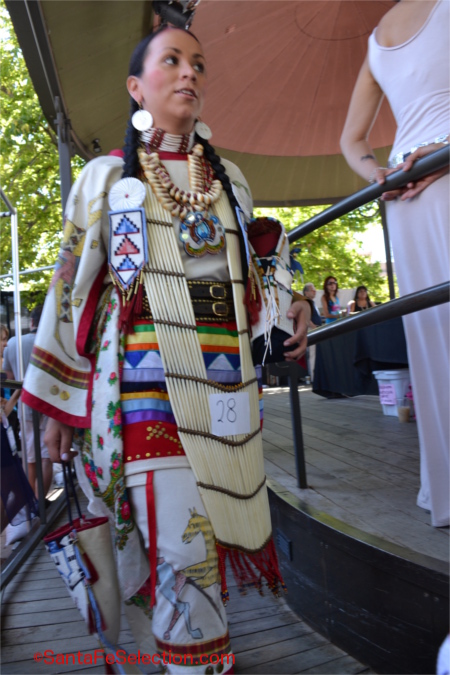One of my favorite highlights of the SWAIA Annual Indian Market is the Native Peoples’ Traditional Clothing Competition. The intricate work involved in these pieces represents the history, traditions and cultures of a variety of Native tribes. SWAIA’s Indian Market brings Native Peoples together from around the United States and Canada. As so many tribes converge, it’s a wonderful opportunity to see the styles, and traditional, ceremonial regalia as they compete for the best in their category.
It is not always easy to get up close to photograph, and ceremonial events at the individual pueblos don’t usually permit photography, so I’m glad I was able to capture a few images of the beautiful clothing that is an integral part of the time-honored traditions of the Native Peoples.
I’ve compiled some images and labeled them where I could. I wasn’t always able to ask the names of the tribes or what the dress styles meant, and I’ll risk being thought of as quite ignorant, but if anyone has answers or corrections, please send me a note to enlighten me further, and I’ll enter the title in the appropriate image. Thank you!
I hope you enjoy this little gallery I’ve put together.
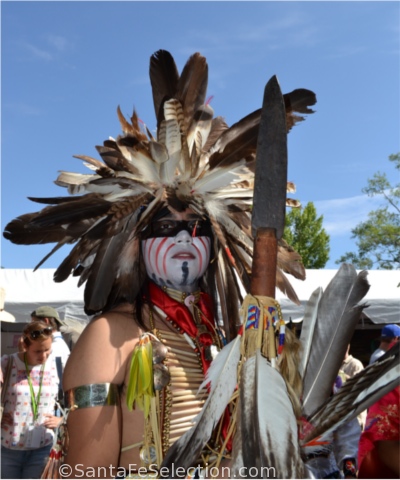
I’m told that the feather hat is known as a Dog Soldier worn by Northern Cheyenne Dog Soldiers. There is a history behind this that would require it’s own article. …someday.
Below on the left is a Navajo woman’s dress, and on the right is one of a young girl from the Kiowa tribe – both were in the Northern and Southern Plains category . The elaborate head-to-toe beadwork in the headdress and adornments, bags and shoes, and hand-sewn details are extraordinary.
This adorable young girl below is affiliated with the Kiowa, Taos region. Her bag is completely beaded, and her dress features beaded detail. Her hat is hand-woven.
From New Mexico’s Santo Domingo Pueblo, the man in the image below is wearing a piece called “Sunrise”, worn at ceremonial dances of Northern Plains tribes to represent the rising sun.
The beadwork and feather work are amazing, and the shells, beads and feathers make this very heavy to wear. Look at the Eagle bustle fanned in the back like sun’s rays!!
With fur trims, and eye-framing beadwork, ankle bells, and feathers, this is a Northern Plains Chicken Dancer.
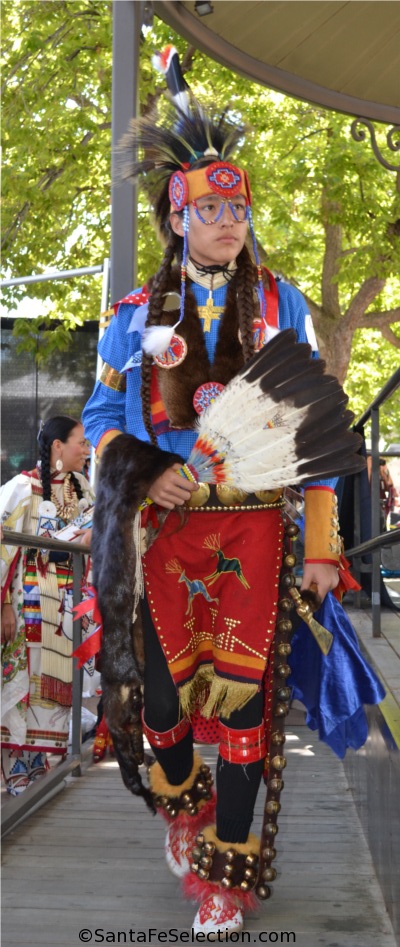
I am told this is a Northern Plains Chicken Dancer. Originated by The Cree or Blackfoot tribes (possibly both) of Canada.
From the Pacific Northwest coast, this is a woman’s robe of the Haida People. She won first prize for the category of Northern and Southern Plains, women’s group age 18 and older.
I really enjoyed the “jingle dresses.” They are beautiful to watch and hear as hundreds of silver cone-shaped bells sing along as the ladies walk by. I’m uncertain of the particular tribe the lady in the image is from, but the jingle dresses are said to have originated with the Chippewa tribes. The rows of metal cones are called ziibaaska’iganan in the Chippewa language. The Chippewa, also spelled “Ojibewa”, comprise one of the largest tribes in the northern U.S. and southern Canada.
On stage, these three young maidens await the results from the judges. At left is a girl from nearby Nambe Pueblo, and center and right are from Navajo tribes. Their dress includes full leg moccasins, silver concha belts, and woven blanket dresses.
This Navajo girl’s dress with a squash blossom necklace and concha belt, won first place in the “Traditional” category for girls aged 6 – 10 years.
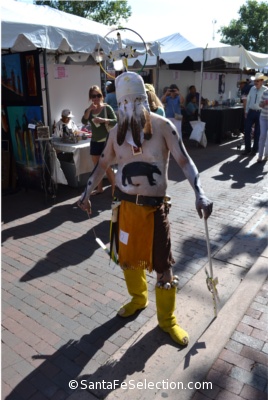
This is an Apache Crown Dancer of White Mountain, Arizona. There are different places the Crown Dancers call home;
White Mountain Az, San Carlos Az, Jicarilla NM, Mescalero NM.
I am almost certain that the image below is a beautiful Sioux dress with cowrie shells.
The Sioux dress below won Honorable Mention in the Women’s 18 and older category
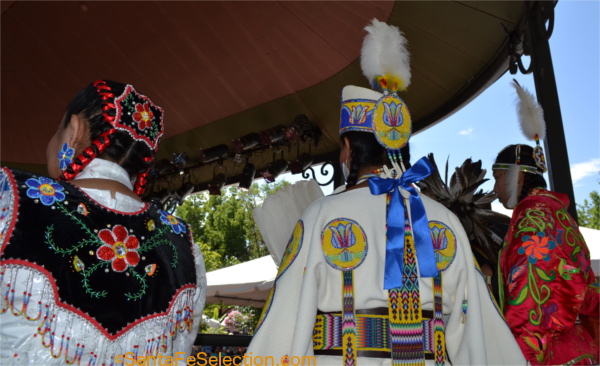
The contestants await the results from the judges on the Santa Fe Bandstand stage.
The opportunity to see more of these wonderful displays of wearable art happens this weekend at the annual SWAIA Indian Market. Every August, usually the third Saturday and Sunday, this hugely popular market draws over 100,000 visitors to Santa Fe. It is wise to book lodging well in advance. The traditional clothing competition event takes place at the Plaza Bandstand amid the festivities and stalls of amazing prize-winning Indian art, on Sunday August 20, 2017 from 9am – noon.
Thank you for reading this article, and if you have any information as to names of tribes on the images above, I’d love to hear from you.
If you’d like to receive my monthly updates, please sign up for my blog at this link.

